
Name: Michelle MacIntosh
Location: Rhode Island, United States
Child’s Birth Year: 2015
Keywords: Advocacy Work, Single Parent, Leaving Unhealthy Relationships
Michelle’s HIE journey has come with more than its fair share of obstacles—not only does her daughter, Briana, have a severe outcome, but she has also had to navigate the world of taking care of a medically complex child as a single mother. Yet, while there were days where Michelle just felt too alone, and everything seemed too overwhelming to keep going, she knew that, as the only parent present in Briana’s life, she had no option but to continue to show up.
At the time of Michelle’s pregnancy, she was living in Virginia with her partner, close by to his family. She had a textbook-perfect pregnancy, and, at all the prenatal appointments, everything was as it should be. But then, when Michelle went to get induced at the hospital, three days after her due date, Briana suffered an HIE event due to a mismanaged labor and delivery. Briana ended up coming out naturally, but she was blue and floppy, had shoulder dystocia, and had a substantial amount of meconium in her throat.
For the first three minutes of her life, Briana didn’t make a sound, and doctors immediately began working on her to make sure she was breathing. Before Michelle went to get cleaned up from the delivery, she did skin-to-skin with Briana and held her daughter for the first time. After Michelle was moved to the recovery room and rested for a bit, Briana was brought back to her.
Those first sixteen hours were tinged with normalcy, as Michelle was able to hold Briana and attempt to breastfeed her. Yet, doctors began to notice signs that all was not right. When Briana went to have her first bath, she could not regulate her body temperature properly…and these problems only persisted. She had apneic episodes, so she was admitted to a different section in the hospital to be monitored more closely. After Briana had a grand mal seizure, she was transferred to a larger children’s hospital with a formal NICU. Michelle will never forget the fear that flooded over her as she saw the incubator, in which Briana looked so helpless, as she was taken away. The first thought conjured in Michelle’s mind was that it resembled the insulated bags used to keep pizza warm during delivery. For the longest time after that, she could not order takeout without being transported back to this terrible moment.
Briana spent the next twenty-four days at the children’s hospital. Although the hospital was only a town over from where Michelle lived, she was grateful she was able to stay in the Ronald McDonald House. For the longest time, no one could pinpoint exactly what was wrong with Briana. The doctors ran various tests to rule out all possibilities. Finally, after Briana received an MRI, they realized that she had HIE. The meeting where the neurologist discussed the MRI results with Michelle was beyond difficult. Briana’s entire brain, except for her cerebellum, was damaged. After being overwhelmed with a grim portrait of the worst-case scenario, all Michelle wanted to do was cuddle with her daughter, take her home, and not be in the sterile hospital environment, surrounded by people with white coats, any longer.
She did everything in her power as a mother to make sure Briana received the best care, so they could go home as soon as possible, but it was not easy having to do everything alone. Briana’s father wasn’t the most supportive person, and, after Briana was born, he basically checked out from the whole situation, abandoning Michelle and Briana when they needed him most.
Throughout the NICU stay, Briana had persistent difficulties with her suck and swallow, so, instead of drinking breast milk by mouth, her initial feeds were via NG-tube. Every time Michelle went down to the private room to pump her milk, she broke down in tears, wondering how everything could have possibly gone this wrong. But, because Briana would only feed when she knew her mother was there, Michelle continued to show up for every single feed.
When Briana was finally discharged, Michelle didn’t have anyone to turn to. Shortly after Briana’s birth, Michelle felt invalidated when well-intentioned people attempted to console her by reminding her that the injury could have been more severe. Just because Briana didn’t need a trach and could breathe on her own, that didn’t take away from the real struggles Michelle and Briana faced daily. Thus, finding Hope for HIE on Facebook three months into the journey was a blessing. For the first time since Briana’s birth, Michelle had a community of people who understood what she was going through and who cared about her well-being. She only wishes she could have found the organization sooner, during those dark NICU days.
In addition, for the first two years of Briana’s life, Michelle remained in Virginia, and, even though she still lived with Briana’s father, he only occasionally spent a few minutes saying “hi” to Briana. He never helped with any of her care. There were constant arguments about his lack of engagement, and, eventually, Michelle discovered he was being unfaithful. It was an unhealthy environment to raise any child in, let alone a child with extensive disabilities. Because all of Michelle’s family lived up north in Rhode Island, she made the tough, but ultimately right, decision to uproot her life and move back to her childhood state. Even though it meant rebuilding her life all over again, Michelle knew that a few weeks or months of having to readjust were worth it in the long run.
It ended up being the best decision Michelle ever made, not only for Briana, but for herself. Three years later, Michelle owns her own home, has made amazing strides in her local community, has built an amazing team of providers for Briana, and has Briana set up at an awesome, inclusive school. She has become close friends with two fellow HIE moms who live near her. Now, once a month, when the local college offers a respite night for parents of children with disabilities, the three of them drop their kids off, so they can catch up with one another. Forging those friendships with adults who have similar lived experiences has been invaluable to Michelle.
In terms of her diagnoses and disabilities, Briana has spastic quadriplegic cerebral palsy, cortical visual impairment, a history of seizures and infantile spams, and sensory processing issues. She is also nonverbal and nonmobile, requiring a wheelchair to get from place to place, and had a G-tube placed in 2019. Briana’s schedule is usually jam-packed with therapy sessions and specialist doctor appointments. At least now, Michelle has landed in a good spot where she finally feels like all the many providers on Briana’s team are truly rooting for her every day. This wasn’t always the case, especially when it came to Briana’s struggle with infantile spasms (IS).
While Briana was battling with IS, Michelle simultaneously battled, for six months, with multiple neurologists, just to get Briana a diagnosis and the proper medication to manage IS. When Michelle took Briana to the first neurologist, she told him she had found out about IS through Hope for HIE. He clearly did not like the fact that she suggested possible diagnoses based on what she read online. Instead of giving Briana the steroids she needed, he only agreed to increase the epileptic medications she was currently on. Even though Michelle took over 100 videos of the IS and had a dozen EEGs, the neurologist was closed-minded to even the possibility that Michelle might know what she was talking about.
Thus, Michelle went to a new neurologist, where she was, again, met with the same skepticism. She felt powerless as a mother, watching Briana’s IS progressively worsen. Finally, after Briana had her longest seizure yet, Michelle went to a third neurologist and pleaded for something to be done. After months of tireless advocating, Michelle finally convinced a neurologist to start Briana on prednisolone, a steroid medication. And, as Michelle suspected all along, since Briana took the first dose, her IS has yet to come back. It should not have taken Michelle six months, three neurologists, and constantly being made to feel like she was a crazy, uneducated, overbearing mother, for Briana to have received essential treatment. Michelle cannot emphasize enough to providers the importance of approaching families with humility and listening to parental concerns, for the parents are the ones who are by their children’s sides for the vast majority of the time.
Michelle’s experience with Briana’s new neurologist at Hasbro Children’s Hospital in Rhode Island has been infinitely better than her interactions with previous providers. Michelle will never forget the time she took Briana for an overnight EEG at the hospital, to get checked out for her sleep issues. Since Hasbro is a teaching hospital, Michelle agreed to let interns come in and observe with the neurologist. After Michelle explained how Briana’s cry sounded different at night, the neurologist told the shadowing interns, “When a parent tells you something like this, you have to listen, and you have to believe them. Especially with children who cannot talk, they will often cry in different ways in order to express themselves.” After years of continually being made to feel like she had no clue what she was talking about, it was empowering for Michelle to finally feel validated as a mother and caretaker of Briana. It brings her hope that empathetic physicians are passing down this advice on how to appropriately communicate with parents. To any HIE parent who has been made to feel silenced, or like their concerns are mere overreactions, Michelle would tell them that they have the power to curate a medical team for their child—find those providers who will make this terrifying journey feel easier, not more difficult. She also urges parents to feel free to change/fire their doctor if something doesn’t sit well. Even if they are in the same practice.
In spite of fighting every day, Michelle is constantly reminded why she continues to do it—for Briana. Now, Briana has a bold personality, and Michelle jokes that Briana has a lot to say for a kid who is nonverbal. Briana’s favorite thing in this world is probably “dancing” around to the Moana soundtrack. Briana also loves going on swings, and it’s clear to see when she is happy, for she has a wide smile on her face that is impossibly contagious. When she’s mad, she certainly makes that clear too—especially if she is overly stimulated, Briana’s scream can be heard from miles away. But anyone who meets Briana falls in love with her, and, overall, she’s just a big bundle of happiness.
Before Michelle takes Briana anywhere, there’s a lot of planning that goes on. Michelle usually googles the location to find out if it is accessible, and she prefers to have someone else accompany her. That way, there is a second set of hands to assist her in case she needs to deal with the doctor or focus on easing Briana’s anxiety when Briana has a meltdown. But Michelle doesn’t let these added challenges stop her from getting out of the house and doing fun things with Briana. She has taken Briana to concerts, princess balls, museums, zoos, aquariums, and more…even a cruise! These are memories she’ll treasure forever. Michelle would tell other parents that, while it is harder, for sure, to do these activities with a child with significant motor disabilities, it’s completely worth it to see the pure joy that washes over their faces. And because it will be so much easier to navigate while a child is young, and still relatively small, persevere through the anxiety or depression confining you to the house.
Through these outings, Michelle has realized that, while the world is slowly becoming better about accessibility, there is still so much progress to be made. For instance, recently, a new playground was in the process of being built in her town. When Michelle saw the computerized drawing of the swing, it looked accessible, but she realized that the mulch flooring of the playground wouldn’t work for a child in a wheelchair. Michelle made a comment on a social media post, raising this concern. From that one comment—because Michelle was not afraid to speak up—an entire community project was kick-started. The page that posted about the playground reached out to Michelle, reaffirming their commitment to ensuring that children of all abilities would have the opportunity to engage in play. They also encouraged her to reach out to the developer to express her concerns. Michelle, along with four other local parents (two of children with disabilities), met with the developer, alongside the mayor, to reform the entire design of the playground to enhance its inclusivity. It brings Michelle unrivaled hope to know that a) her community truly cares about promoting accessibility, and b) that she is part of the collective cause to ignite meaningful change for the disability community.
Over the years, Michelle has shifted her focus away from why this happened to her and toward what she can do to make the most out of a situation that no family ever wants to endure. Thus, she uses her past to fuel her purpose—a purpose of creating a better future, not just for Briana, but for all children with disabilities, with a purpose of doing all she can to make this experience more supportive for HIE parents. Michelle is proud that, because she had the courage to be vulnerable about her experience, freeing herself from a toxic partner, she has helped other HIE moms realize that they, too, have the strength to leave behind unhealthy environments. In addition, Michelle is a parent representative for the Rhode Island Parent Information Network (RIPIN), a local nonprofit organization that utilizes peer support to help parents find the resources and support they need to take care of their loved ones in areas such as healthcare insurance, early intervention services, and schooling. Specifically, she serves on RIPIN’s Early Intervention Interagency Coordinating Council (ICC), where she provides advice on how to make early intervention as beneficial a service for families as possible. Michelle’s experiences with EI in Rhode Island were far superior to her experiences with EI in Virginia. It was life-changing to a point where she has not only felt inspired to share her story within RIPIN, but also with the state governor and 200 of the most influential people involved in Rhode Island politics. Every time she shares her story, Michelle feels a weight lifted off her shoulders. Knowing that she is spreading awareness about the importance of early intervention is one of the best feelings ever (second, of course, to seeing Briana’s contagious smile!).
While this life has almost broken Michelle, becoming Briana’s mother has also been more rewarding and eye-opening than she could have ever imagined. Michelle will forever be grateful for all that Briana has taught her, and continues to teach her, on a daily basis. Briana has shown Michelle that, even with adversity and challenges, life can be great—Briana is only able to experience a sliver of life, and she’s still one of the happiest kids ever. Briana does have her bad moments, but she is instantly able to find joy in things as simple as the sound of something dropping on the floor. Briana has inspired Michelle to similarly appreciate the little things in life and never take any day for granted.
In addition, because of Briana, Michelle finds herself no longer afraid to let her voice be heard, whether that entails speaking up for herself, for her daughter, or for the larger disability community. The teachers at Briana’s school even refer to Michelle as “a badass mom.” If she sees something that is not right, such as the inaccessible swing, Michelle is the first person to say, “Hey, we need to change this.” The slogan of the disability movement is “Nothing about us without us” for a reason—without those personally impacted by disability offering input, so many barriers to accessibility would be overlooked.
To other single HIE parents, Michelle isn’t going to lie—accessibility does make an already difficult journey that much more challenging. For her, a quick trip to the store to buy a gallon of milk doesn’t exist. Dating as the parent of a medically complex child has been disheartening. And because she doesn’t have a partner to divide responsibilities with, it’s all that much easier to feel burned out at the end of the day.
To all HIE parents in general, but especially to single parents, Michelle’s two biggest pieces of advice would be to a) accept help from others and b) engage in self-care. For the first few years of Briana’s life, Michelle didn’t have any nurses’ help with Briana’s care, leading her to feel mentally and physically drained. Because of negative past experiences with healthcare, it was difficult for Michelle to trust someone else to take care of her daughter. But Michelle is so glad she was finally able to give up some of that control she clung onto. Once she found a nurse to come to the house to help out, Michelle felt like she finally had some space to breathe.
Another important way to find that help is by doing research to find free, local resources and organizations, such as RIPIN, or parent support groups. On many occasions, Michelle felt completely lost, such as during the process of creating an IEP for Briana as she transitioned to school or during the process of trying to resolve issues with insurance. Because of RIPIN, Michelle was able to unload some burden off her shoulders by accepting guidance from people who had substantial experience navigating these processes.
In addition, it’s certainly trickier for Michelle to find time just for herself as a single mom, but that doesn’t mean she doesn’t still seek it out. She learned the hard way that, by neglecting to look after her own well-being, not only was she physically killing herself, but she was in a really dark place mentally. The longer you spend in that dark place, the deeper you fall, and the harder it becomes to see the light. Even if it just means dropping your child off at a respite program at a local college, community center, or church for a few hours and sitting in the parking lot, carve out time for yourself.
As Michelle looks ahead, she cannot wait to see what the future holds for her and Briana. Even if they don’t change the entire world, they are changing their town for the better—and it feels so unequivocally good and healing. Three years ago, Michelle was curled up in a ball, crying, every single night, not sure how she could possibly continue doing it alone. If you told the Michelle of three years ago that she would eventually go on to share her life story with the governor or help inspire a community project, she would have never believed it. If you told the Michelle of three years ago that she would come to be known as a “badass mom” for making sure her voice was heard and her daughter was included, she would never have believed it. If you told the Michelle of three years ago that she was considering working for early intervention and starting her own nonprofit organization to make a difference in the lives of families and children with disabilities, she would have never believed it.
And yet, here she is, finding beauty in the battle, being the change instead of waiting for change, bringing awareness to accessibility, and promoting acceptance of differences.
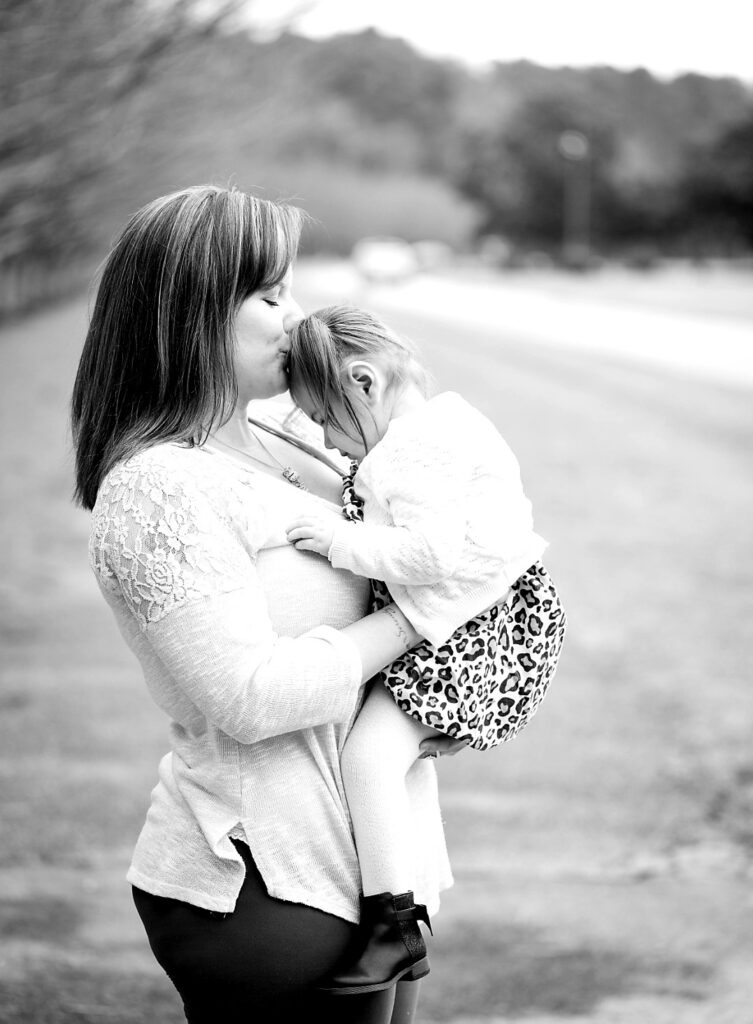
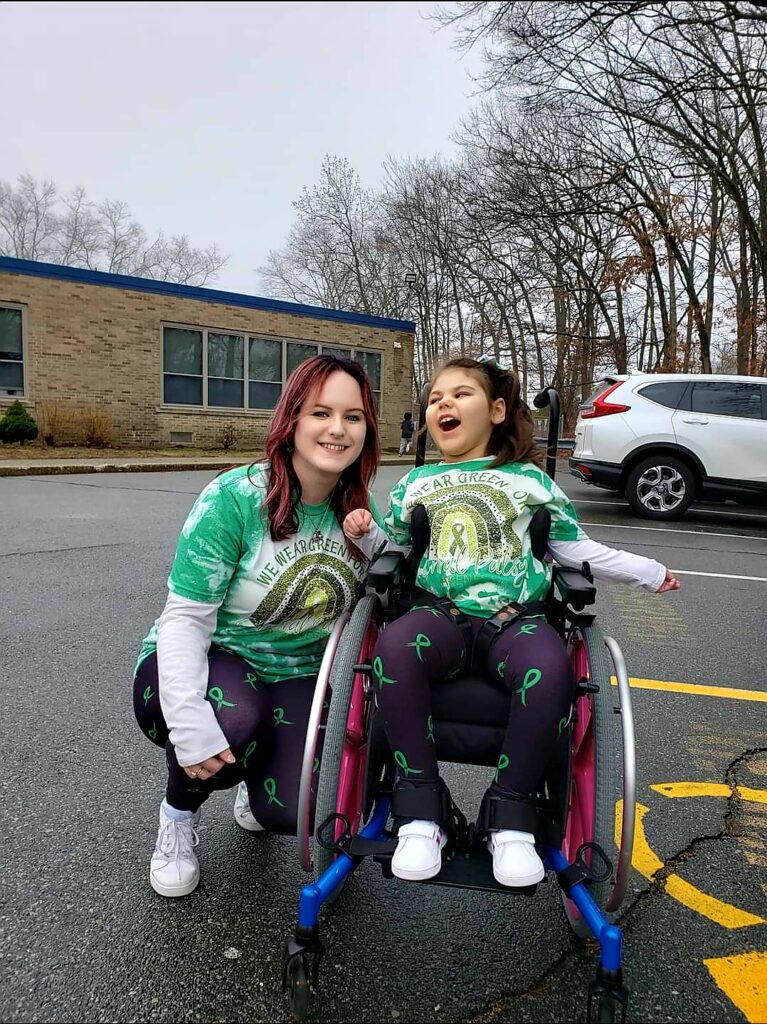
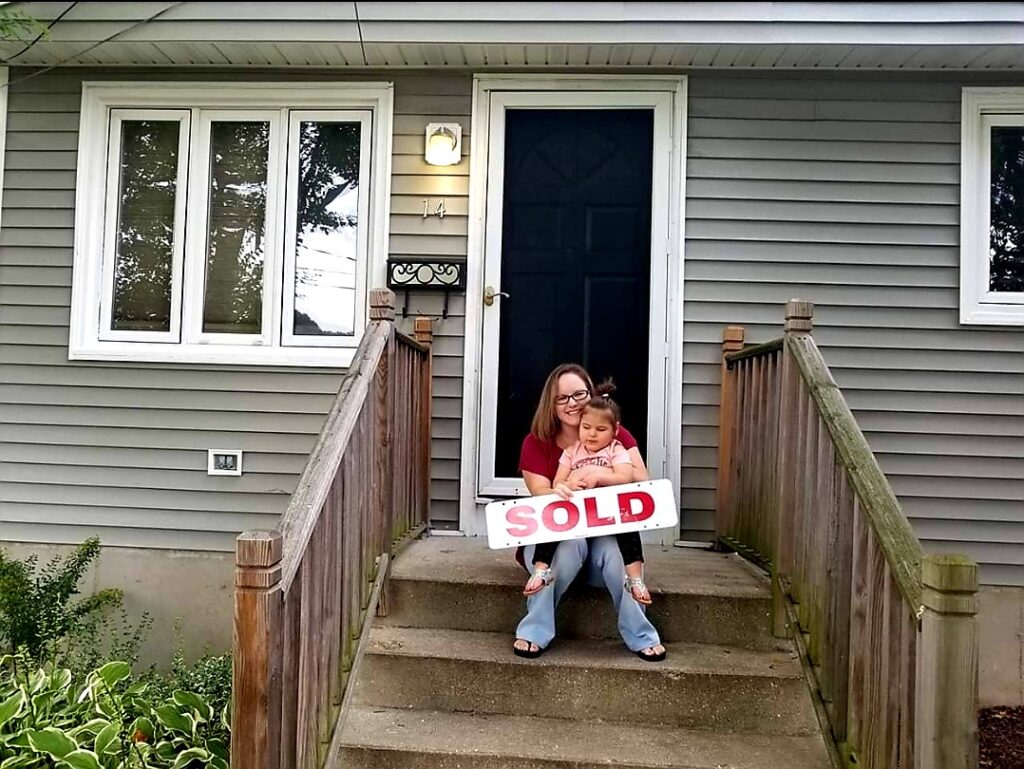
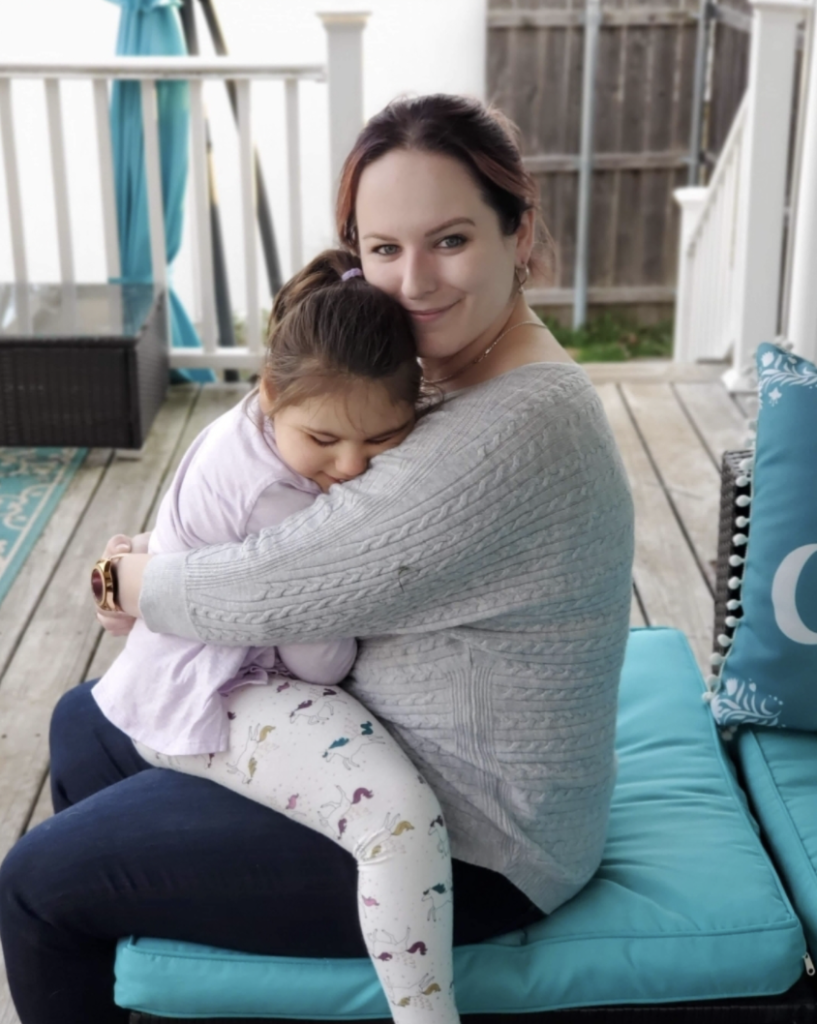
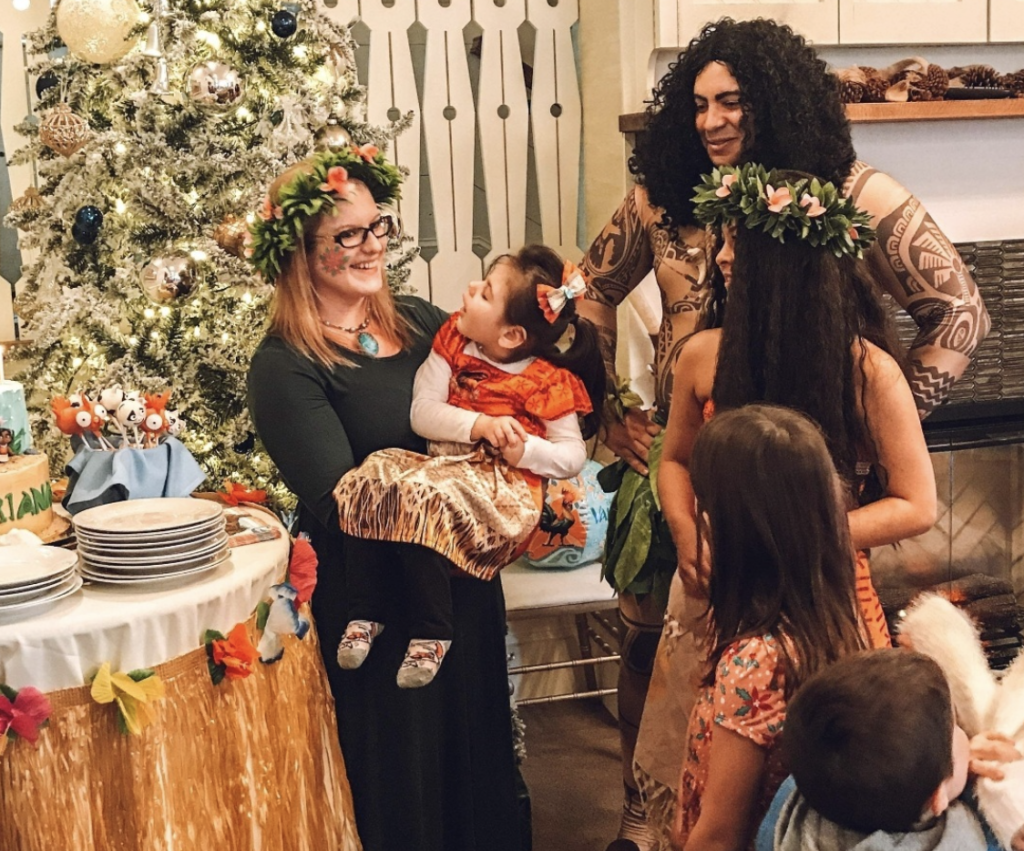
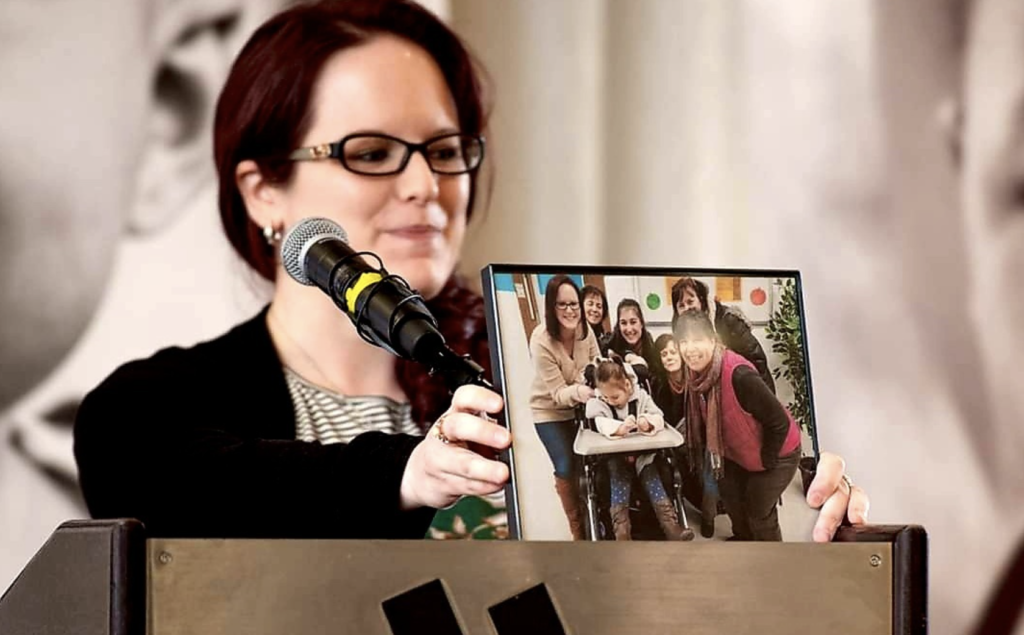
Connect with families, read inspiring stories, and get helpful resources delivered right to your inbox.